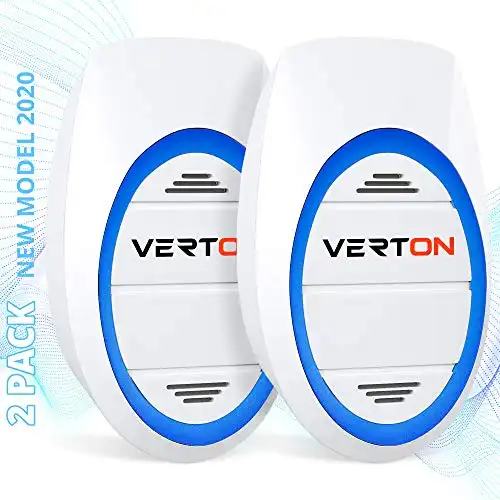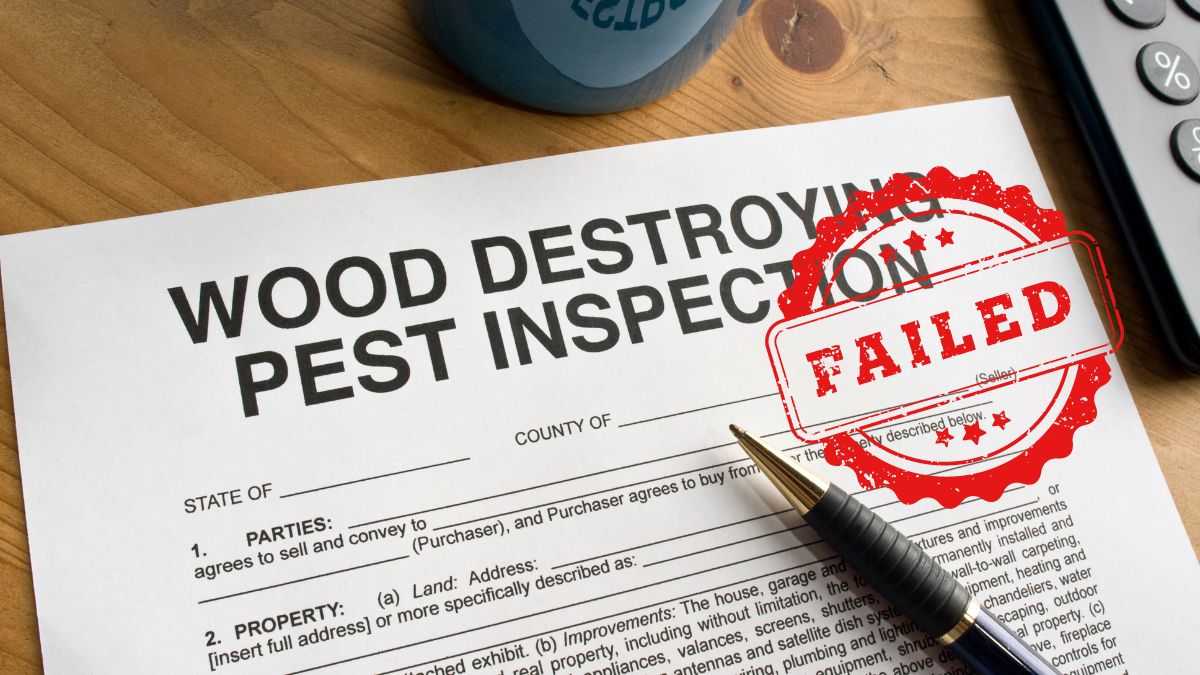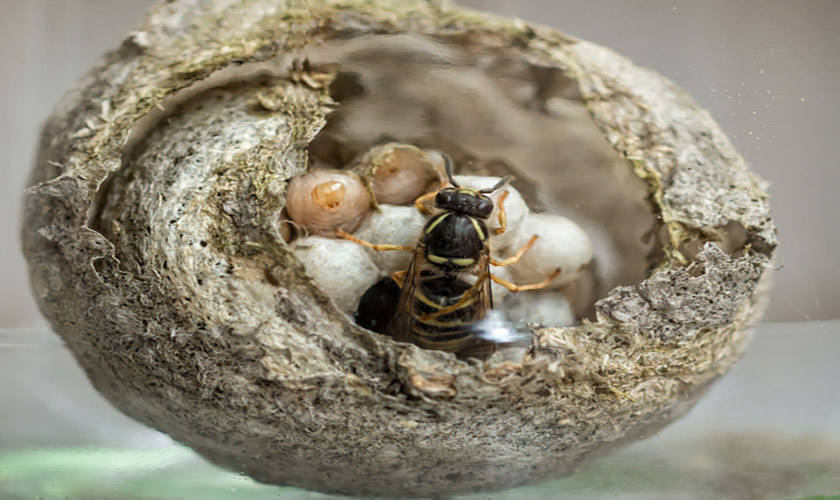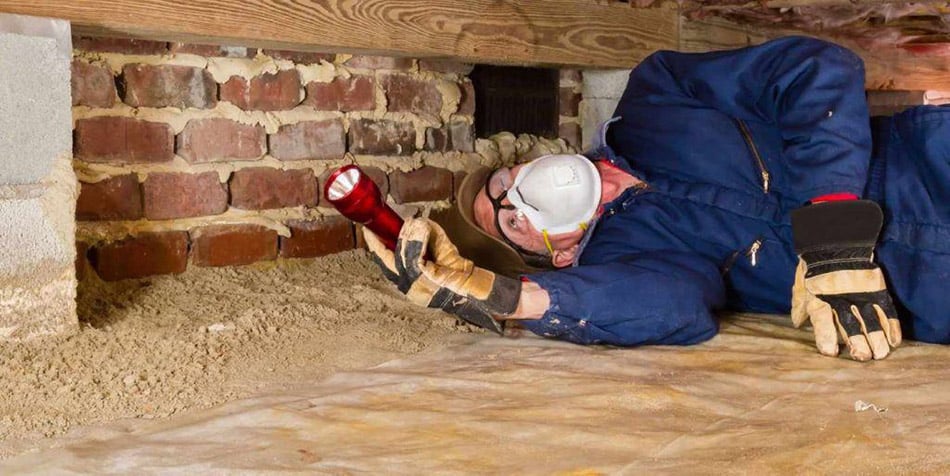
You might be wondering what precisely ultrasonic pest repellents involve. These devices are used for high-frequency emitting sounds to kill, repel, or injure household pests like insects and rodents.
Whether they are a scam or effective at killing insects and rodents has been discussed by several bodies, including the Federal Trade Commission (FTC) and testing labs. Do you think they are a scam, and why?
Studies and consumer product testing show that ultrasonic pest repellents do not work as much as advertised. The high-frequency sound claims to be perfect for preventing a household infestation, but the reality is that they are not as effective as it seems. This is especially true for larger insects and rodents, such as cockroaches or rats.
These devices didn’t affect others, such as spiders and ants. Whether ultrasonic pest repellents are a scam or effective depends on many factors.
Get FREE quotes from licensed pest control technicians in your area today. Whether you need spraying for ants, roaches, spiders, ticks, mosquitos, or bed bugs, We Can Help! All technicians are screened, licensed, and insured.
This article will focus on ultrasonic pest repellents and why they are relevant. So keep reading to learn and understand more about Ultrasonic pest repellents.
Why You Need Ultrasonic Pest Repellents
Pest control is required in your home for various reasons. First, when insects and rodents are left unchecked, they can transmit hantavirus, salmonella, and other diseases. Second, they could also cause potential damage to important buildings.
Some signs of rodent and insect infestation include chewed or gnawed foodstuffs, holes in certain materials, and droppings beneath sinks and near food.
Cockroach infestation is arguably the most difficult to eliminate and a pervasive type of infestation. It’s mostly in urban environments, including commercial and industrial kitchens.
The Cockroach eggs are found in areas that are hard to spot, including crevices and cracks in drains and kitchen cabinets. However, if you use ultrasonic pest repellents, there is a high chance that you’ll eliminate these pests.
How Ultrasonic Pest Repellents Work
The application of audible sound for discouraging pests has been there for many years. For instance, the Chinese have used mechanical repellent devices to distract rodents in their buildings and crops.
Ultrasound involves sound frequencies above the limit capable of being heard by humans. The technique has been in use only for the past few decades.
It works by plugging an ultrasonic device into your home’s power outlets, which will then release high-frequency sounds to disrupt pests. Unfortunately, the sound produces an audiogenic seizure response characterized by convulsions, possible death from a cerebral hemorrhage, and non-directional running.
The principle here is that rodents or insects flee if destruction restricts them from breeding, communicating, gathering food, and building nests.
The devices are appealing and popular because they’re easy to use. They are also silent and nullify the need for poison and traps.
Subsonic and electromagnetic devices are readily available and come in different designs depending on signal frequency, rate, and intensity.
Do Ultrasonic Pest Repellents Work?
As we have seen above, studies are looking into the efficiency of pest repellents. Unfortunately, these studies have revealed mixed outcomes.
For instance, an extensive test done by Kansas State University in 2002 found that ultrasonic repellents were very effective in killing and repelling certain insects, including crickets. However, there was little success with cockroaches. These devices didn’t affect others, such as spiders and ants.
There has also been a rise in safety concerns. For instance, some people have reported that the sound from the repellents can cause muting in hearing aids and weaken telephone conversation clarity.
In some cases, the noise could cause unintended suffering in rodent pets like rabbits. Although dogs and cats can hear sound on the ultrasonic scale, they’re unbothered by such noise.
Some manufacturers of repellents offer claims that aren’t supported by scientific evidence.
That notwithstanding, several users of ultrasonic pest repellents have expressed their satisfaction with the success of the products. Customers are therefore encouraged to research more about brands before making purchases.
It must be positioned in areas where the signal travels uninterrupted by furniture and walls for the device to work effectively.
Videos like the one below show the Pest Reject device tested for 10 days on mice and how the mice went right up to the device out of curiosity and seemed unphased by it. However, it’s unknown if the device affected other pests as the video only monitored mice activity.
What Pests Do Ultrasonic Pest Repellents Claim To Work On?
Most ultrasonic pest repellents advertise driving away various unwanted garden and home visitors, such as:
- Bed bugs
- Cockroaches
- Flies
- Mosquitos
- Birds
- Mice and Rats
- Silverfish
- Ticks and fleas
In the below video, a baiting area was placed outside that both rats and rabbits were feeding on. Over several months the author stated that he noticed some decrease in activity but not a total decrease in activity. Eventually, the rabbits and rats seemed to have adjusted to tolerate the ultrasonic sounds.
Safety of Ultrasonic Pest Repellents on Pets
Most ultrasonic pest repellents release sounds with a frequency of over 20 kilohertz (kHz). The frequency level your pets can hear depends mainly on the type of animal.
For instance, guinea pigs, hamsters, mice, pet rats, and other pet rodents can capture sounds of up to 90 kHz. Likewise, cats can pick up at most 60 kHz, while dogs can hear up to 40 kHz.
The problem isn’t whether your pets can hear the sound from the ultrasonic pest repellents. Instead, the main concern is whether the sound can affect your animals or not.
Safety concerns may arise regarding the long-term neurological damage to your pets because, unlike pests, they live in your home and are forced to stay within the vicinity of the ultrasonic devices for a long time.
Unfortunately, there is no research to investigate the long-term effects of sounds on cats, dogs, and other popular pets.
If you own a pet, you should consult your veterinarian before purchasing an ultrasonic pest repellent.
Considerations While Selecting the best Ultrasonic Pest Repellents
You should consider several things while selecting the best ultrasonic pest repellents. First, you must do background checks on developing the best pest control program from power sources to pest types.
The industry applies ‘repellent’ and ‘repeller’ interchangeably. Repellents can involve both sprays, chemical dust, and repellent devices. Always focus on the factors below:
The Type of Pests
Ultrasonic pest repellers can offer you a solution, whether everything with creepy crawlies popping up every night or when you’re preparing your house to keep warm-seeking mice away when the outdoor temperature dips.
Generally, ultrasonic pest repellents address rodent issues in your home. However, plugging a repellent into your outlets can assist if the challenge is a rat or mouse issue.
Many products are also efficient against other pests such as ants, mosquitoes, fleas, snakes, bats, scorpions, crickets, fruit flies, cockroaches, and squirrels. There are even brands that can assist you in preventing bed bug infestation.
There is even a chance of you getting products that can repel cats and dogs from your yard. So if you have a friend who owns a dog visiting you, you should be selective about the product you buy.
Working Range
If you want your ultrasonic pest repellent to be effective, you should provide enough coverage. Most available products cover an area of about 800 to 1,200 square feet. This range mainly applies to wide-open basements. Ceilings and walls might offer a limited range.
If there are many walls around your home, you should have several repellents in the house to allow full coverage. The best approach is to have the repellents in troublesome areas such as near drafty doors, the kitchen, or in moisture-laden rooms.
Having at least two repellents throughout your home makes their range likely overlap and offers adequate coverage.
Power Source
There are at least primary sources of power for ultrasonic pest repellents: battery, electric, and solar power.
- Electric repellents function well in a garage or home. The repellents are connected to standard 110V outlets to cover the garage, laundry room, kitchen, and anywhere else you would be experiencing pest issues.
- Solar pest repellents are perfect for chasing out pests from your yard. The repellents stick to the ground and draw up the sun’s rays. Here, photovoltaic panels convert the sun’s rays into stored energy.
- Battery-powered repellents are ideal for staying bug-free at an outdoor event, hunting, or fishing. They use batteries to repel rodents and insects.
Longevity
There is no hiding that ultrasonic pest repellents offer long-term coverage compared to other repellents. However, traps, sticky dust, and poisons always need refilling from time to time. For severe cases, this can be once per week.
Since weekly maintenance is frustrating and expensive, you can use ultrasonic repellents, which can last for three to five years. They generate ultrasonic sounds that repel pests and rodents as long as they have power.
Tech Features
Most yard repellents generate energy from the sun. For them to be effective at night, the repellents must conserve power until pests appear.
Several models employ motion sensors to detect any movement and then release sounds rather than removing them throughout the night to save more energy in such a case.
Several models have lights and work either as deterrents or nightlights. However, deterrent lights only flash upon detecting a pest, thus scaring it away.
You can even use the flashing lights for your home security to alert you when an intruder or dangerous animal is in your home.
The Top Ultrasonic Pest Repellents
Let’s look at some of the best ultrasonic pest repellents you can select:
The Bell+Howell Ultrasonic Repellent is an optimal option for the whole house. The product comes with six devices having three different sizes.
As a result, you can use micro-designed repellents if you notice pests near cupboards, tabletops, or other places. Use a socket to plug in the device.
The most significant design can be placed in the bedroom or living room, while classic designs are perfect for hallways and basements.
This repellent is ultrasonic and doesn’t have any harmful chemicals. It’s effective against cockroaches, rats, spiders, or even ants. The good thing about the product is that it works silently for your family.
The product offers efficient ultrasonic waves of different frequencies. However, unlike other products on the market, pets can’t become immune or get used to this solution.
The Avantaway Ultrasonic Pest Repellent is the perfect option for fighting off rats, fleas, bed bugs, mice, and other pests. To use the product, you need to connect it to a 100-240V power of about 4-6W for effective performance.
One electronic plug repellent can cover an area of about 1600 sq. ft. in a room. If the pest infestation is in the whole house, use several products. If you want effective performance, use the product for at least 1-2 weeks.
The Brison Ultrasonic Pest Repellent is a plug-and-use pest repellent that offers complete protection by generating ultrasonic and electromagnetic waves to help you chase the pests away.
The repellent covers an area of about 1600 square feet. It’s applicable in hotels, warehouses, garages, and offices.
If you use this product, ants and cockroaches will crawl away, rats will run, and fleas will flee. It functions straight from the box and is 100% safe for pets and humans.
If you have bought the product and want to use it, plug it into your power socket and turn it on. The benefit of using the product is that it’s quiet and eco-friendly.
The Verton VO1B is an all-in-one solution with every chance of becoming your favorite. It functions by generating ultrasonic waves of either 25KHz or 65KHz. Experts predict first results within a week and total pest-free life in 30 days.
It’s suitable for both outdoor and indoor use. If you want to use this product, plug it into the socket and leave it on. A single device can cover 1500 to 2100 square feet.
Conclusion
So, do ultrasonic pest repellents work? Unfortunately, there’s no clear evidence they work. Some customers report success, while others don’t. It’s difficult to cast a clear Yes or No because conditions vary widely. Ultrasonic pest repellents are not meant to replace cleanliness and pest control services, and you should still utilize a local pest control company for problem infestations and routine services.
Get FREE quotes from licensed pest control technicians in your area today. Whether you need spraying for ants, roaches, spiders, ticks, mosquitos, or bed bugs, We Can Help! All technicians are screened, licensed, and insured.


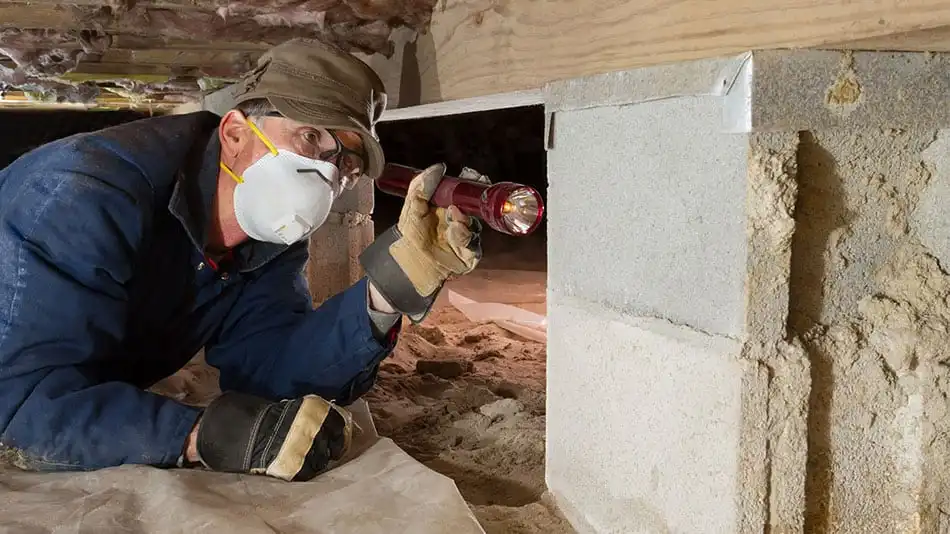
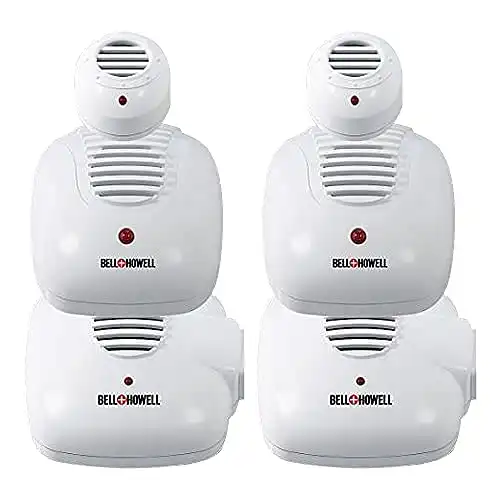
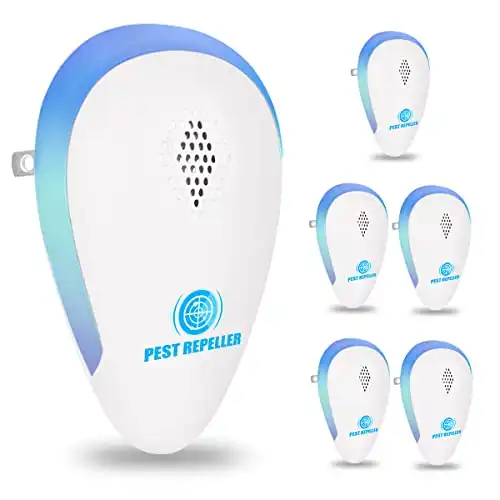
![Brison Ultrasonic Pest Repeller - Rodent Repellent Indoor Ultrasonic Control – Repellent For Mice Rat Bug Spider Roach [4-Pack]](webp/51-hqkq43rs._sl500_.webp)
